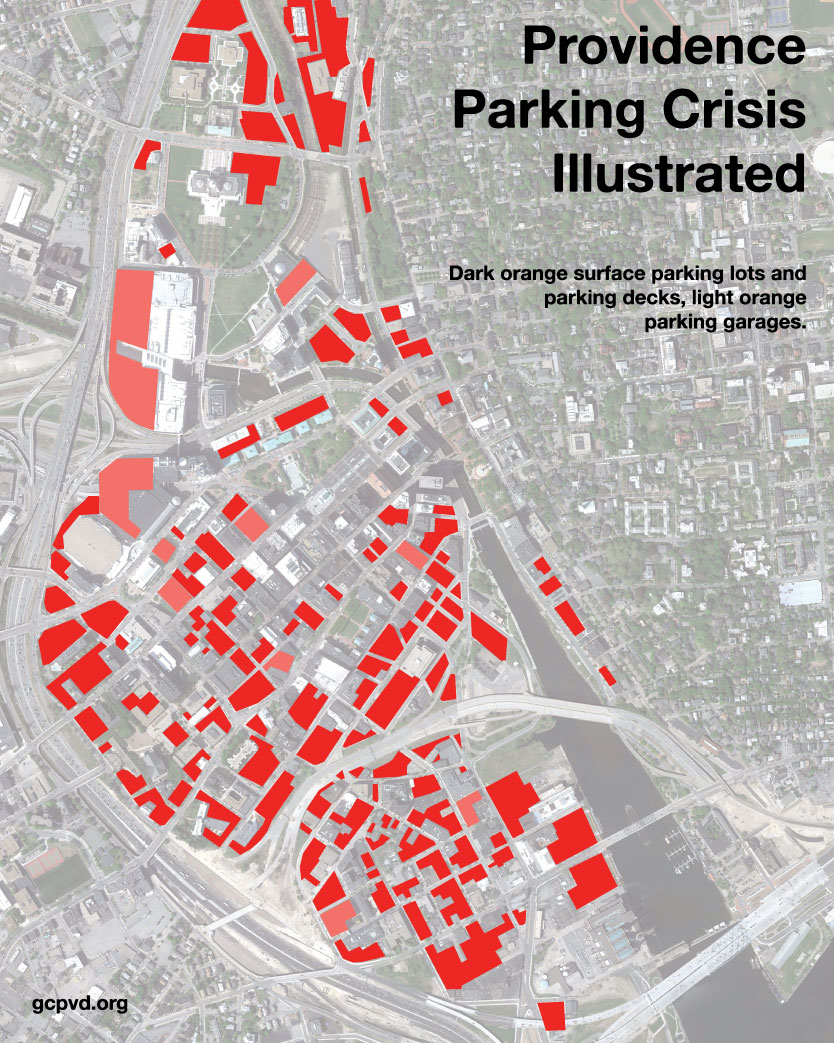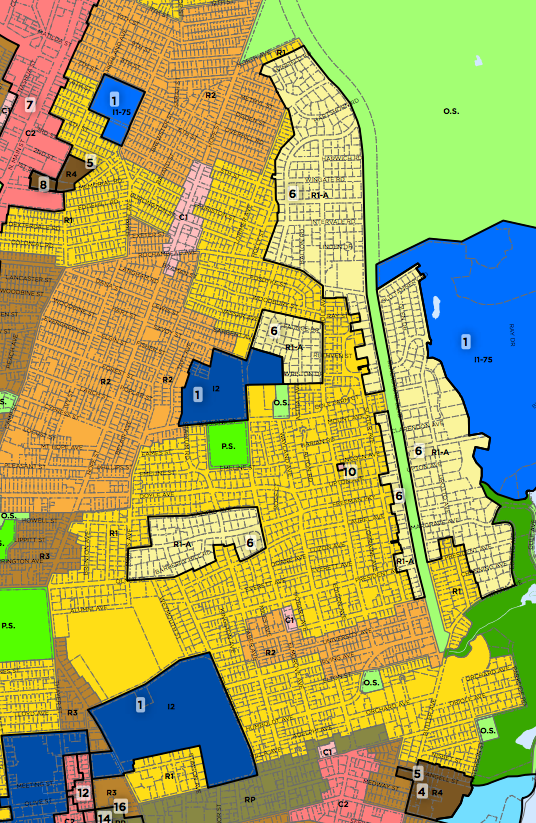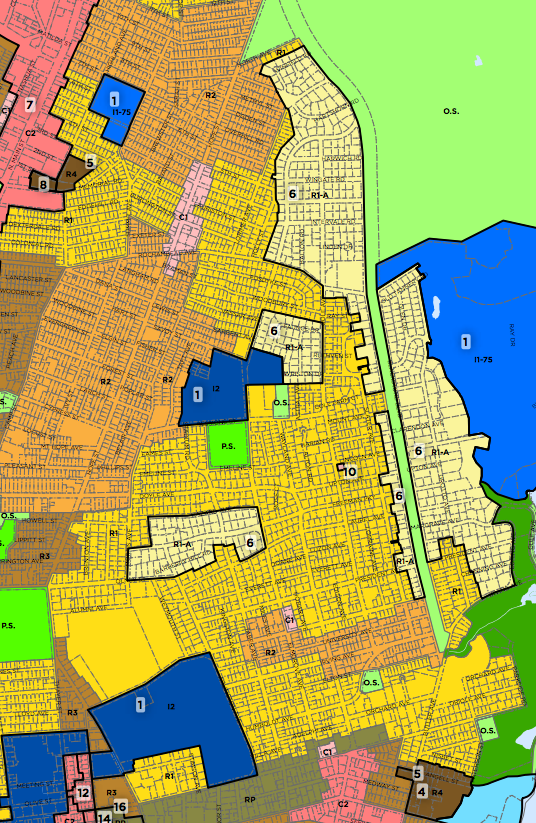 Former Providence mayor Joseph Paolino’s media blitz around homelessness should be taken with a grain (or two, or three) of salt. In 2014, Paolino spoke with James Baar at The Projo (“The Seven Deadly Sins of Downtown Providence”, April 29, 2014) to outline his angst over panhandling homeless people and low income bus riders, suggesting a set of recommendations that show the casino magnate and parking lot landlord’s true political center. As I pointed out at the time and more recently, what really stretches credulity about Paolino’s 2014 proposals wasn’t simply their blithe disregard for the poor, but the barking way that Paolino assumed the city could just take up major new financial liabilities without any realistic stream of money to pay for them. With such extravagant ideas as removing Kennedy Plaza entirely, building a giant underground garage under it, and doubling the size of Burnside Park– all while policing the area to get rid of “vagrants” and completely banning potholes (Just “Do it!” yelled Paolino through the voice of Baar), you would think the city must be swimming in money. The kind of money that could, of course, help resolve the root causes of homelessness.
Former Providence mayor Joseph Paolino’s media blitz around homelessness should be taken with a grain (or two, or three) of salt. In 2014, Paolino spoke with James Baar at The Projo (“The Seven Deadly Sins of Downtown Providence”, April 29, 2014) to outline his angst over panhandling homeless people and low income bus riders, suggesting a set of recommendations that show the casino magnate and parking lot landlord’s true political center. As I pointed out at the time and more recently, what really stretches credulity about Paolino’s 2014 proposals wasn’t simply their blithe disregard for the poor, but the barking way that Paolino assumed the city could just take up major new financial liabilities without any realistic stream of money to pay for them. With such extravagant ideas as removing Kennedy Plaza entirely, building a giant underground garage under it, and doubling the size of Burnside Park– all while policing the area to get rid of “vagrants” and completely banning potholes (Just “Do it!” yelled Paolino through the voice of Baar), you would think the city must be swimming in money. The kind of money that could, of course, help resolve the root causes of homelessness.
The 2014 priorities listed by Paolino remain poor uses of city or state funding, but the former mayor’s softer tone on homelessness opens up an opportunity to hold his feet to the fire and demand some changes. Most recently, in an interview with The Projo’s Edward Fitzpatrick, Paolino says he wants the city to avoid the “Giuliani way” of removing homeless people, and look to root causes. Will Paolino stay true to his word?
Here are some things Paolino can back to show that he’s serious.
A parking lot tax, with a refund to housing costs

Paolino has large holdings in downtown parking lots. Essentially these are land speculation projects. It makes sense to hold onto prime land in the city, earning money off of commuters who park there, until a perfect skyscraper project comes along for those plots of land. Parking lots do pay property taxes, but because a surface lot is not valued highly, this gives speculators the best of all worlds– an easy short-term revenue stream, low taxes, and a lottery ticket that is likely to be worth a lot of money in the future.
I’ve argued in the past that putting a tax on surface parking would change the balance of this math. Land speculators like Paolino would be inclined to build something– anything– to hold the space until larger projects could come, instead of pimping parking lots. A developer may prefer a skyscraper, and in the long-run that may be the best thing for the city as well, but having rowhouses in the space while something else comes along means people have a place to live. As bigger projects form, the city could also require the continued tenancy of low income residents as part of mixed income development. This could itself help create more affordable housing. A tax on parking could and should also be refunded directly to properties adjacent to the parking, lowering the cost of business and residency in the city. Yet another way that this stream of revenue could considerably change the forecast for the poorest people would be if a portion of it was directly put towards housing vouchers for homeless individuals and families. Paolino has suggested that more money be put to shelters for homeless people, but what people truly need is permanent housing.
A parking lot tax would cost Paolino– he owns 11 lots. But if he’s serious about his statement that the business community needs to step up, endorsing this reform and pushing it through the business community would be one sincere step he could take.
Deregulation of single-family only zoning & parking minimums
Many Providence neighborhoods do not allow affordable housing, by law. The zoning code is full of arcane regulations designed to allow only what types of housing currently exist in a neighborhood. This is nothing like what happened in normal cities before the 1920s.
Providing affordable housing in Providence should partly be built around getting rid of some of these arcane rules.

Parking minimums require that most residences have x number of parking spots per square foot of space. This both makes the housing itself more expensive, and also rules out building new housing on land that is taken up by parking.
Providence also has a number of neighborhoods that don’t allow anything but single-family homes. Sometimes these neighborhoods already have some houses that aren’t single-family, and they’ve been carved into the zoning as exceptions. The business community and city need to work together to eliminate zones like 1 & 1A, which don’t allow things like granny cottages, rowhouses, apartments, twins, duplexes, or triple-deckers. The business community and city also have to work together to end the practice of putting residency limits on students. Students bleed out into housing, making what affordable options that exist more expensive, and displacing people on the fringes of becoming homeless.
These are not issues that Paolino can be held accountable for, but in his new-found advocacy for the homeless, they should become centerpieces of policy change. Paolino should push zoning reform.
Transit at the center, not the fringes
While Paolino can’t be blamed for zoning, he can be held accountable for his long agitation against Kennedy Plaza as a bus hub. In 2014, as I stated, Paolino advocated for moving buses “to the fringes of the city” and getting rid of the bus hub entirely, to make it an underground parking garage.
People who become homeless often have serious problems that go beyond job access, but once they get on track, keeping a job is a very important stabilizing force. Transit is one of the most important ways to make sure that low-income people, who cannot afford cars, can have access to jobs.
I’ve had some online discussions with other transit advocates who point out that RIPTA should not be running all its routes through Kennedy Plaza. I agree with this criticism, and think we need an effort to put together a full network of bus routes like what Jarrett Walker designed in Houston, but I also think it’s clear this hasn’t been what Paolino meant in the past. Referring to buses as needing to be “at the fringes” is pretty clear about why the buses need to move– in this case, to take the sour image of poor people out of the downtown. Paolino’s business coalition needs to work to make transit a priority by spearheading efforts to give buses rights-of-way, improving frequencies of bus routes by funding RIPTA better, and updating the city’s poor pedestrian and bike layout to aid last-mile connections.
I’ve argued in the past that while there’s been a lot of action around maintaining free bus passes for elderly and disabled Rhode Islanders, that more attention needed to be put to making the bus system run efficiently and frequently (an argument I borrowed from Jarrett Walker as well). However, even in that piece, I argued that it was silly not to offer homeless people free rides on RIPTA. RIPTA has temporarily extended the free bus pass program pending funding, but business leaders like Paolino need to make RIPTA a long-term priority.
Supporting RIPTA, biking, and walking would be a big turnaround for Joe Paolino, but if he’s truly a reformed man with a vision to end the plight of the homeless, that would be what he needs to do.
And Scrooge was better than his word
I would be lying if I said that I trusted Joe Paolino’s softer messaging on panhandling in Kennedy Plaza. Over the years, many of Paolino’s priorities for the city have struck me as hostile to poor people and to non-drivers, couched in the kind of right-leaning identity politics one might associate more with Donald Trump than a former Democratic mayor of a blue-state city. But everyone can change. I will open my arms to Joe Paolino if he changes his ways. He needs to embrace the end of his parking empire as a way of speculating off of city land, support putting direct tax resources into more affordable housing, back zoning deregulation to stop the experiment of single-family-only neighborhoods, and back a robust RIPTA with bike and pedestrian infrastructure to support last-mile connections. His rhetoric has to move beyond temporary housing for homeless people, and towards permanent solutions.
As Charles Dickens would put it:
Scrooge was better than his word. He did it all, and infinitely more; and to Tiny Tim, who did not die, he was a second father. He became as good a friend, as good a master, and as good a man, as the good old city knew, or any other good old city, town, or borough, in the good old world. Some people laughed to see the alteration in him, but he let them laugh, and little heeded them; for he was wise enough to know that nothing ever happened on this globe, for good, at which some people did not have their fill of laughter in the outset; and knowing that such as these would be blind anyway, he thought it quite as well that they should wrinkle up their eyes in grins, as have the malady in less attractive forms. His own heart laughed: and that was quite enough for him.
God Bless Us Every One.
~~~~


Deprecated: Function get_magic_quotes_gpc() is deprecated in /hermes/bosnacweb08/bosnacweb08bf/b1577/ipg.rifuturecom/RIFutureNew/wp-includes/formatting.php on line 4387
Deprecated: Function get_magic_quotes_gpc() is deprecated in /hermes/bosnacweb08/bosnacweb08bf/b1577/ipg.rifuturecom/RIFutureNew/wp-includes/formatting.php on line 4387
Deprecated: Function get_magic_quotes_gpc() is deprecated in /hermes/bosnacweb08/bosnacweb08bf/b1577/ipg.rifuturecom/RIFutureNew/wp-includes/formatting.php on line 4387